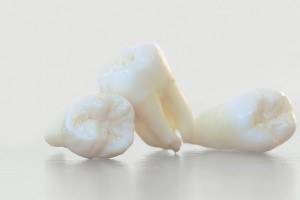 The use of stem cells in healing and regenerating various parts of the body has shown to be quite promising in various studies. Interestingly, when some think of stem cells, they normally think of embryonic cells, however, stem cells can be found throughout the human body—including inside teeth. Preliminary research has shown that dental stem cells are very potent and can be transplanted to nearly any type of tissue. Our oral surgeons offer stem cell preservation in addition to routine extractions such as primary and wisdom teeth removal.
The use of stem cells in healing and regenerating various parts of the body has shown to be quite promising in various studies. Interestingly, when some think of stem cells, they normally think of embryonic cells, however, stem cells can be found throughout the human body—including inside teeth. Preliminary research has shown that dental stem cells are very potent and can be transplanted to nearly any type of tissue. Our oral surgeons offer stem cell preservation in addition to routine extractions such as primary and wisdom teeth removal.
What are stem cells exactly?
You have probably heard a lot about stem cells on the news but you might be unsure of what exactly stem cells are and how they can be used in medicine. Simply defined, stem cells can regenerate a number of tissues because they can differentiate into a specialized cell and then divide through the biological process of mitosis, whereby more stem cells are produced. Currently, scientists can differentiate stem cells to grow new hard and soft tissue like bone, nerves, and muscles. From Parkinson’s disease to cancer, stem cell harvesting has been shown to move us closer to the cure.
Where are dental stem cells located?
Dental stem cells are located inside the tooth in the pulp chamber. The pulp itself houses very potent stem cells.
What is the easiest way to get stem cells from teeth?
The easiest way for preserving stem cells from teeth is after a tooth extraction. Many patients will need an extraction in their lifetime, be it removing baby teeth or wisdom teeth. Using advanced technology, our oral surgeons will remove and store stem cells after an extraction if the patient chooses to preserve these cells.
What happens to the cells after extraction?
By using StemSave, a company that preserves and stores cells for future use, our team will place cells in StemSave’s recovery and transportation kit where cells will be transported and stored in cryogenic tissue banks. While science and medicine continue to advance, these stem cells can have multiple therapeutic uses in the future.
It is virtually impossible to predict the future health challenges that you will face, but it is also very encouraging to know that your body’s own cells might someday be used to heal and regenerate damaged tissues and organs. Brain injuries, periodontal disease, and other health conditions could be reversed with fewer side-effects and more ideal results.
Contact our team at Oral Surgery Associates of North Texas and ask about the possibility of saving stem cells from your extracted wisdom teeth today.

Comments are closed.